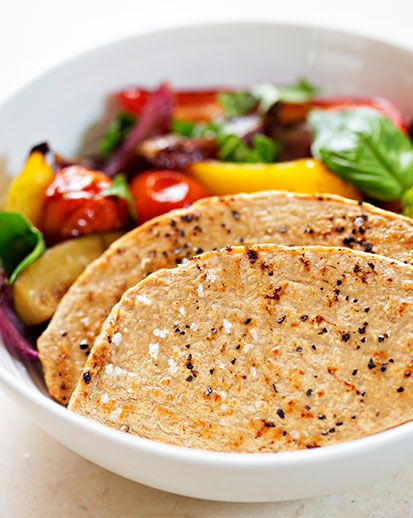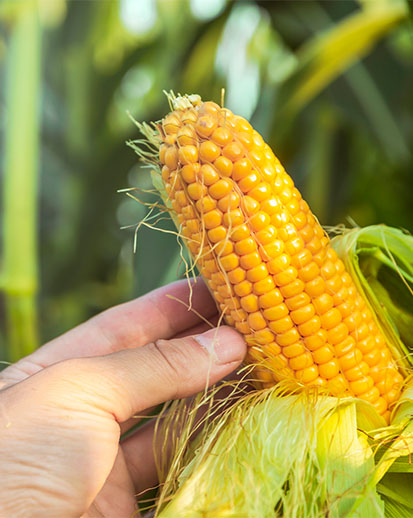Overall financial results
Strategy
DSM’s purpose-led, performance-driven strategy sees sustainability and innovation as key growth drivers of a long-term focused plan, underpinned by ambitious targets across People, Planet and Profit.
In September 2021, DSM announced the acceleration of its strategic journey to become a focused Health, Nutrition & Bioscience company organized, as from 1 January 2022, in three market-focused Business Groups. These will be much closer aligned with their respective customers and, through the integration of activities previously performed by the DSM Innovation Center, will be fully equipped to rapidly develop impactful science-based and market-ready solutions. This structure will also allow DSM to leverage its strong combination of scientific competences and growing portfolio of nutrition and health solutions, as well as harness the latest advancements in digital technology and bioscience.
As a Health, Nutrition & Bioscience company, DSM sees significant headroom for further growth and innovation by building on its unique business model combining ‘global products’ and ‘local solutions’ and by adding a third dimension of ‘precision and personalization’ that captures emerging big data, digital and bioscience capabilities. In the new structure, DSM is also ideally positioned to address the huge environmental and societal challenges which face the global food systems.
DSM maintains ambitious mid-term profit targets as a Health, Nutrition & Bioscience company of mid-single digit % organic sales growth, an above 20% Adjusted EBITDA margin, and high-single digit % Adjusted EBITDA growth, supported by its strong innovation pipeline.
DSM also announced a review of strategic options for its Materials businesses in September 2021, including a possible change of ownership. As from 1 January 2022 these high-quality businesses are managed largely on a stand-alone basis and will continue their existing growth strategies focusing their innovations and business development on the increasing demand for materials that protect the health of both people and planet by adding further bio-based and circular solutions
Financial results
This section includes an overview of the key financial metrics of the company in respect of its continuing operations performance in 2021 and 2020, except where otherwise indicated.
The year 2021 was a transitional year in terms of the evolution of the COVID-19 pandemic, as global demand for goods and services resumed, at pace, but also with a great deal of unpredictability. This put stress on global supply chains, logistics and workforce availability which provided great challenges for economies around the world, giving rise to rapidly accelerating inflationary pressures towards the end of the year. Within this context, Nutrition business conditions remained robust during the year, and Materials saw a very strong recovery.
As a result, DSM delivered strong full year results in a challenging environment, and despite adverse foreign exchange developments throughout most of the year. For continuing operations we reported an 18% rise in Adjusted EBITDA to €1,814 million, driven by another very good performance in Nutrition, supported by continued innovation success and contributions from acquisitions, and a strong result in Materials, which compares with a prior year of weak industry demand impacted by the pandemic. Adjusted net operating free cash flow from continuing operations increased by 9%, compared to 2020, to €949 million.
Nutrition delivered a very good performance, with an 8% increase in its organic sales (all volume-driven) and Adjusted EBITDA, highlighting an excellent operational performance and reliability as a supplier as we successfully navigated the significant supply chain and logistic disruptions throughout the year. Pricing actions were taken during the last period to begin to counter the rapidly rising inflationary pressures that emerged. Animal Nutrition & Health delivered 10% organic sales growth owing to good demand in the underlying animal protein markets, further supported by higher stock levels at customers because of concerns regarding supply chain uncertainty, together with growing inflationary pressures in the fourth quarter. Human Nutrition & Health recorded 5% organic sales growth, building on last year’s strong volume growth of 7%, as demand for immunity-optimizing products remained high and food services began to re-open around the world boosting demand in Food & Beverages and Food Specialties. Personal Care & Aroma saw strong growth owing to a recovery in sun and skin care, as travel restrictions eased, as well as strong demand for detergents and disinfectants.
Materials delivered a strong performance with a recovery in Protective Materials and elevated demand for Engineering Materials owing to supply disruptions and raw materials shortages across the industry, leading to a 27% increase in sales (driven equally by volumes and price) and a 60% improvement in adjusted EBITDA. DSM volumes compared to pre-COVID 2019 were 6% higher, while markets continued to struggle with semiconductor shortages and supply chain disruptions throughout 2021, highlighting our role in meeting market demand that could not be fulfilled by competitors due to force majeure events.
Adjusted EBITDA margins for Nutrition were 20.6% in 2021, down slightly compared to prior year of 21% owing to inflationary effects in the fourth quarter. Materials saw a strong recovery from weak market environment of 2020, with an Adjusted EBITDA margin of 22.5% in 2021 compared to 17.9% in the prior year, owing to strong operational leverage.
x € million |
|
2021 |
|
2020 |
|
Change |
|---|---|---|---|---|---|---|
|
|
|
|
|
|
|
Continuing operations |
|
|
|
|
|
|
Net sales |
|
9,204 |
|
8,106 |
|
14% |
Adjusted EBITDA |
|
1,814 |
|
1,534 |
|
18% |
EBITDA |
|
1,702 |
|
1,368 |
|
24% |
Adjusted operating profit |
|
1,139 |
|
929 |
|
23% |
Operating profit |
|
1,021 |
|
662 |
|
54% |
Adjusted net profit |
|
858 |
|
711 |
|
21% |
APM adjustments |
|
231 |
|
(254) |
|
-191% |
Net profit from continuing operations |
|
1,089 |
|
457 |
|
138% |
Adjusted net operating free cash flow |
|
949 |
|
872 |
|
9% |
ROCE (in %) |
|
11.1 |
|
10.4 |
|
|
Adjusted EBITDA margin (in %) |
|
19.7 |
|
18.9 |
|
|
|
|
|
|
|
|
|
Total group |
|
|
|
|
|
|
Net profit for the year |
|
1,680 |
|
508 |
|
231% |
Net profit available to equity holders of Koninklijke DSM N.V. |
|
1,676 |
|
506 |
|
231% |
Adjusted net operating free cash flow |
|
941 |
|
955 |
|
-1% |
Net sales and Adjusted EBITDA
At €9,204 million, net sales from continuing operations in 2021 were 14% higher than in 2020 (€8,106 million). Organic growth in 2021 was 13%. Volume development was 10%, while price/mix had a 3% positive effect on growth compared to 2020. Exchange rate fluctuations had a negative impact of -2%, and acquisitions contributed another 3% to sales.
High-growth economies together currently represent 45% of our sales (47% when Africa is included), which is 3 percentage points higher than in 2020. The share of sales in these economies as a proportion of our total sales gives us a well-balanced global footprint.
The Adjusted EBITDA (Adjusted operating profit before depreciation and amortization) from continuing operations increased by 18%, or €280 million, from €1,534 million in 2020 to €1,814 million in 2021. Adjusted EBIT (Adjusted operating profit) from continuing operations increased from €929 million in 2020 to €1,139 million in 2021, up 23%.
|
|
Net sales |
|
Adjusted EBITDA |
||||||||
|---|---|---|---|---|---|---|---|---|---|---|---|---|
x € million |
|
2021 |
|
2020 |
|
% change |
|
2021 |
|
2020 |
|
% change |
|
|
|
|
|
|
|
|
|
|
|
|
|
DSM, continuing operations |
|
9,204 |
|
8,106 |
|
14% |
|
1,814 |
|
1,534 |
|
18% |
Nutrition |
|
7,031 |
|
6,365 |
|
10% |
|
1,447 |
|
1,338 |
|
8% |
Materials |
|
1,935 |
|
1,518 |
|
27% |
|
435 |
|
272 |
|
60% |
Innovation Center |
|
168 |
|
184 |
|
-9% |
|
26 |
|
21 |
|
24% |
Corporate Activities |
|
70 |
|
39 |
|
79% |
|
(94) |
|
(97) |
|
-3% |
Net profit
Adjusted net profit from continuing operations of €858 million was up by 21% versus 2020. Net profit available to equity holders of DSM increased by €1,170 million to €1,676 million. Next to the improved adjusted net profit from continuing operations of €147 million, this increase was mainly a result of the net book profit of €570 million on the sale of Resins & Functional Materials and the net book profit of €303 million on the sale of DSM’s share in AOC Aliancys. Furthermore, this included the lower other APM adjustments (down by €125 million, mainly due to lower impairments and acquisition costs). Expressed per ordinary share, net earnings from continuing operations amounted to €6.26 in 2021 (2020: €2.64).
Financial income and expense increased by €39 million year on year to a net expense of €106 million. This was mainly caused by the impact of the accounting for renewable energy contracts (a financial expense of €7 million in 2021, compared to a financial income of €27 million in 2020).
The total effective tax rate over taxable result 2021 for continuing operations was 18.4% (2020: 17.9%). excluding APM adjustments this was an increase from 18.5% to 19.2%. This increase was mainly due to uncertainties under local laws, partly compensated by higher tax-exempt income in several countries and the higher tax rate in the Netherlands as of 2022.
Adjustments made in arriving at DSM’s Alternative performance measures (APM adjustments)
Total APM adjustments from continuing operations for the full year amounted to a profit of €231 million (2020: loss of €254 million), consisting of a loss in EBITDA of €112 million (including restructuring costs of €92 million and acquisition/divestment costs of €26 million), impairments of €6 million, a related tax benefit of €30 million, and a profit of €319 million relating to associates and joint ventures (mainly the profit on the sale of DSM’s share in AOC of €303 million).
Net sales by destination
in %
Net sales by origin
in %
Net sales by business segment
in %
Net sales by end-use market
in %
Net sales bridge 2021
x € million
Adjusted EBITDA margin
in %
x € million |
|
20211 |
|
20201 |
||||
|---|---|---|---|---|---|---|---|---|
|
|
|
|
|
||||
Cash and cash equivalents at 1 January |
|
871 |
|
800 |
||||
|
|
|
|
|
||||
Cash provided by operating activities |
|
1,427 |
|
1,494 |
||||
Cash from/ |
|
208 |
|
(1,482) |
||||
Cash from/ |
|
(984) |
|
83 |
||||
Effect of exchange differences |
|
39 |
|
(24) |
||||
Cash and cash equivalents at 31 December |
|
1,561 |
|
871 |
||||
|
||||||||
Cash provided by operating activities of €1,427 million mainly consists of the EBITDA for the year (€2,370 million), excluding the book profit on the sale of Resins & Functional Materials before tax of €640 million (recognized under investing activities). Overall, the full-year operating cash flow decreased by €67 million. This was driven by various items, including increased working capital (see also Consolidated financial statements).
The cash from investing activities consisted mainly of the proceeds from the divestments (€1,791 million, mainly from the divestments of Resins & Functional Materials and DSM’s share in AOC), partly offset by capital expenditures (€570 million) and acquisitions (€704 million, mainly First Choice Ingredients and the Fragrance & Flavours business of Amyris).
The cash used in financing activities included the early redemption of the 2022 bond (€500 million), dividend paid (€266 million) and the repurchase of shares (€165 million).
For the full cash flow statement, see the primary statement in the Consolidated financial statements.
Balance sheet
The balance sheet total (total assets) reached €16.0 billion at year-end (2020: €14.3 billion). Equity increased by €1,910 million, which was attributable to the net profit of €1.680 million, the exchange rate impact on foreign operations of €474 million, offset partly by the dividend payments of €424 million. Equity as a percentage of total assets increased from 52% to 59%.
Compared to year-end 2020, net debt decreased by €1,563 million to €1,014 million, mainly due to the divestments of Resins & Functional Materials and DSM’s share in AOC, offset partly by the early redemption of the 2022 bond (€500 million). The gearing at year-end was 9.7%, which was considerably lower than the gearing of 25.6% at year-end 2020.
Capital expenditure on intangible assets and property, plant and equipment amounted to €608 million for continuing operations in 2021 (€563 million on a cash basis), which was roughly the same as the level of amortization and depreciation (excluding the depreciation on leases).
Total working capital from continuing operations amounted to €1,805 million compared to €1,591 million at year-end 2020. This represents 18.7% as a percentage of annualized fourth-quarter 2021 sales (2020: 19.1%), which is below our aspiration of 20%. Cash-wise, the operating working capital (OWC) from continuing operations increased €183 million compared to last year, which is fully attributable to the increased sales. The OWC percentage decreased from 24.6% at year-end 2020 to 24.1% of annualized sales at year-end 2021.
Cash and cash equivalents came to €1,561 million at the end of the year; including current investments, this amounted to €2,050 million (2020: €914 million). Besides the regular cash flow elements, this increase was mainly due to divestments (€1,791 million), acquisitions (€704 million), redemption of the 2022 bonds (€500 million), the repurchase of shares (€165 million) and the paid dividend (€266 million).
|
|
2021 |
|
2020 |
||||
|---|---|---|---|---|---|---|---|---|
|
|
x € million |
|
in % |
|
x € million |
|
in % |
|
|
|
|
|
|
|
|
|
Intangible assets |
|
5,310 |
|
33 |
|
4,440 |
|
31 |
Property, plant and equipment |
|
3,957 |
|
25 |
|
3,775 |
|
26 |
Other non-current assets |
|
617 |
|
4 |
|
711 |
|
5 |
Cash and cash equivalents |
|
1,561 |
|
10 |
|
871 |
|
6 |
Other current assets |
|
4,568 |
|
28 |
|
4,549 |
|
32 |
Total assets |
|
16,013 |
|
100 |
|
14,346 |
|
100 |
|
|
|
|
|
|
|
|
|
Equity |
|
9,397 |
|
59 |
|
7,487 |
|
52 |
Provisions |
|
164 |
|
1 |
|
184 |
|
1 |
Other non-current liabilities |
|
4,089 |
|
25 |
|
4,493 |
|
32 |
Other current liabilities |
|
2,363 |
|
15 |
|
2,182 |
|
15 |
Total equity and liabilities |
|
16,013 |
|
100 |
|
14,346 |
|
100 |
"Once again we delivered a performance in line with our ambitious mid-term financial targets. An excellent operational performance saw us successfully navigate challenging market conditions, ensuring we met the expectations of our customers. We are well positioned to counter the rising input costs that we saw at the end of the year."
Outlook 2022
DSM expects its Health, Nutrition & Bioscience activities to deliver a high-single digit Adjusted EBITDA increase. For the Group, it expects a mid-single digit Adjusted EBITDA increase, with a high-single digit Adjusted Net Operating Free Cash Flow increase. This outlook is based on DSM’s expectation of a stable Adjusted EBITDA in Materials following the strong performance in 2021.





